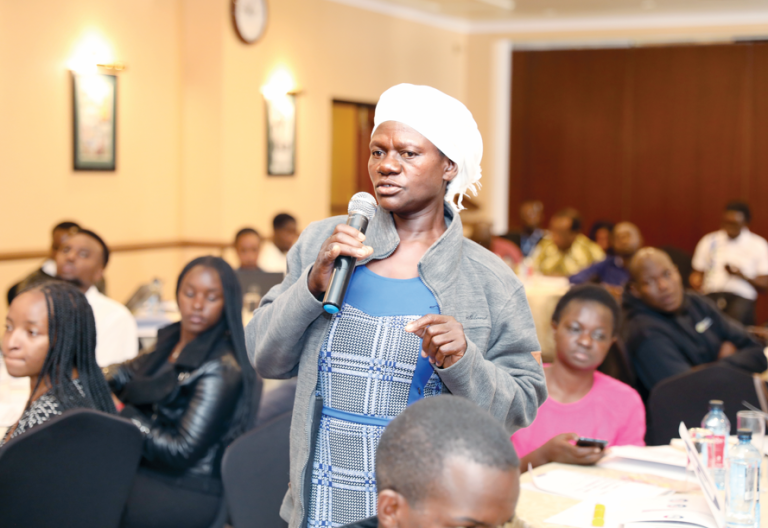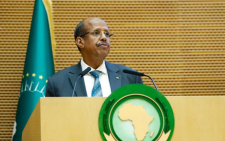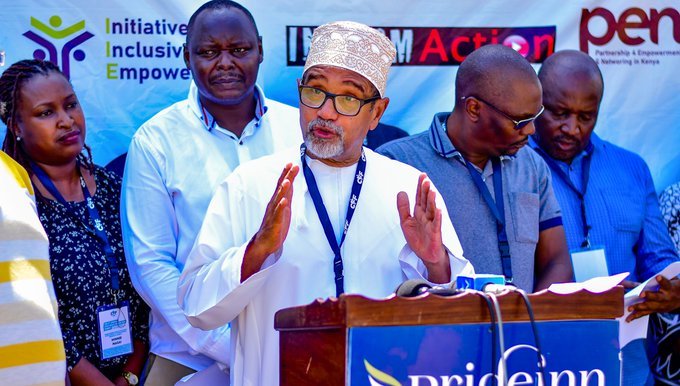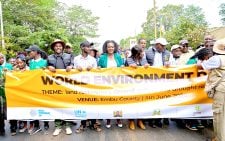Alarm raised over toxic toll of mercury in Migori’s mines

In the goldfields of Kenya’s Migori County, where artisanal and small-scale gold mining sustains nearly 40 per cent of the population, mercury, the toxic heavy metal used in gold processing, is silently poisoning water, soils and the environment.
The Friedrich Naumann Foundation for Freedom – Kenya (FNF-Kenya) has published a study that reveals alarming levels of mercury contamination, in effect showing that the pursuit of gold to sustain livelihoods is slowly turning into a health and environment nightmare.
According to the study, Migori is host to some 158,000 artisanal and small-scale gold miners, who are directly exposed to the mercury-related occupational health and safety risks.
The study, published in April 2025 using data collected during field visits in October 2024, tested water, soil, fish, and tailings (mining debris) near mining sites, and uncovered mercury concentrations far beyond safe limits.
Water samples near gold mining hotspots showed mercury levels up to 100 times higher than the safety threshold for drinking water prescribed by the World Health Organisation and Kenya’s National Environment Management Authority (Nema).
Besides, soil and waste samples (tailings) from mining areas revealed mercury levels two to three times higher than what is considered safe for farming, raising concerns that this toxic metal could seep into the local food chain.
While water samples from rivers like Nyangoto—taken from river points located just six kilometres from mining sites—revealed mercury levels more than 30 times the safe limit, the fish, for now, showed no detectable traces of the toxin.
Inadequate data
“One big issue we found is the huge lack of data. The number of people working in mining in Migori is just an estimate, and there’s no proper information about the health problems caused by mercury exposure. To really understand how serious this problem is, we need more data and ongoing monitoring. What we’re seeing might be the tip of the iceberg,” said Stefan Schott, the project director of FNF-Kenya.
Additionally, gold mining is also taking a socio-economic toll, with school-going children dropping out of school to engage in gold mining, affecting education in the county.
The gender pay gap between men and women involved in gold mining also raises questions about gender discrimination. Men dig for the ore deep in the shafts; the women process it – break stones, wash, and extract the gold. Yet the women are paid less, are sexually harassed, and have no voice. Both jobs are necessary to get the gold, so there’s no real reason for women to be paid less.
The study’s revelation of a mercury contamination crisis in Migori, underscores the need for urgent regulatory and policy action to address health and environmental risks. The community, too, are required to avoid water sources near mining areas.
“Mercury exposure in the mining industry is a major public health threat that cannot be ignored – aggravating the portrait of what I call the ‘Vicious 9Ds of Mining’ – community displacement, disputes, dispossession, deprivation, destitution, disease, degradation, deformity, and death,” said Nashon Adero, author and expert in mining surveys.
“Mining done right is a significant source of inclusive economic empowerment, making it urgent and critical for both local and national authorities to take immediate action to safeguard the health of mining communities and the broader ecosystem.”
Sustainable practices
The study further calls for implementation of more equitable policies to address the exposed gender inequalities and ensure that women have access to fair wages, decision-making roles, and opportunities for economic empowerment.
Sustainable mining practices, stronger regulatory enforcement and compliance monitoring, and community education are essential to reduce the harmful effects of mercury contamination in Migori County and beyond.
The comprehensive field study, was done from October 11 to October 30, 2024 and involved community sensitisation, surveys and interviews with artisanal miners and other key stakeholders in the mining sector. The research aimed to provide an in-depth understanding of the socio-economic, health, and environmental challenges mining communities face. The study also sought to identify sustainable practices that could reduce the mining sector’s harmful ecological footprint.
FNF-Kenya is part of the global Friedrich Naumann Foundation for Freedom, a Germany organisation dedicated to promoting liberal values and principles of democracy, human rights and rule of law.













